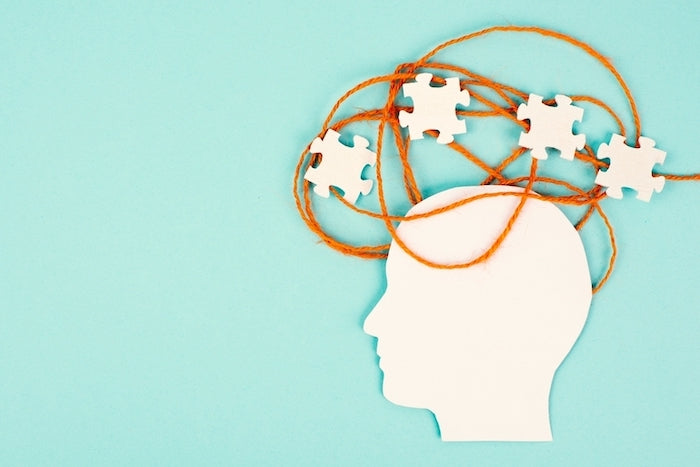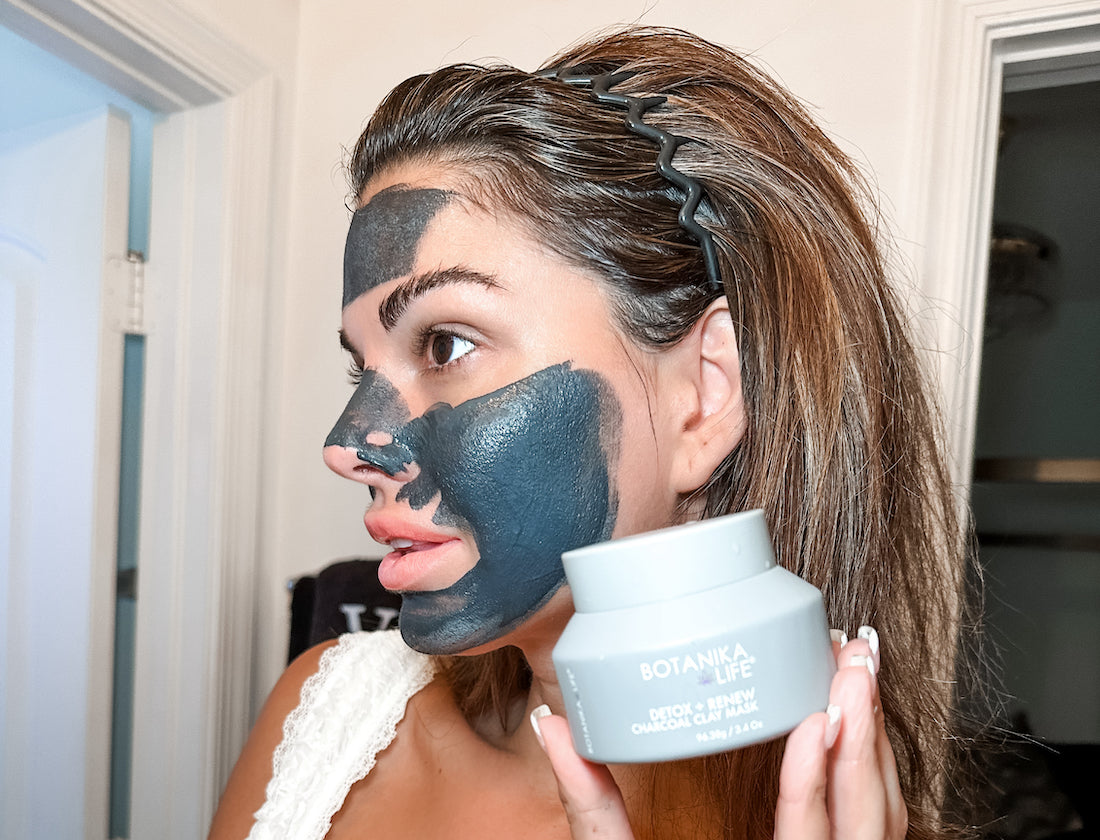
Jet Lag Prevention Supplements & Management Tips
Jet lag is a common problem when traveling to new time zones, leading to a variety of not-so-fun symptoms. While jet lag doesn't last forever, it can negatively impact the start of a trip, even for a few days.
Typical travel-induced jet lag symptoms include drowsiness, fatigue, headaches, lack of concentration, digestive issues, and muscle aches. Traveling, particularly flying, can also be stressful and cause anxiety. Quickly crossing time zones impacts your biological clock, aka circadian rhythms, which can cause daytime grogginess and difficulty sleeping at night. All these issues are inconvenient and even detrimental while on a vacation or work trip.
Preparing before you travel with the right jet lag-fighting tools can make or break your travel experience. Let's take a look at some simple, natural ways to prevent and relieve jet lag symptoms, and improve your health while you are on the go.
Supplements & Natural Ingredients to Manage Jet Lag
Melatonin
Having trouble falling or staying asleep is a common result of jet lag, especially when traveling to a time zone where the local time is ahead of your own. Melatonin is a hormone naturally produced by your body, released in the evening when the sun sets or your brain senses darkness. Traveling can throw your circadian rhythm completely off, especially with time changes, making melatonin an ideal natural jet lag supplement to rebalance your sleep-wake cycle.
When using melatonin to manage jet lag, you have a few options for when to take it, including starting before your trip or the day you travel. You can take melatonin between 30 minutes to two hours before you want to sleep while traveling, but you can also start ahead of time to help prevent sleep issues resulting from jet lag. If you are traveling to a time zone where the local time is ahead of your time (aka traveling east), try taking melatonin at the time you will be going to sleep for a few days prior to leaving. This will help you adjust once you arrive at your destination.
Melatonin works better in low doses, so a “less is more” approach is what you should aim for. As a general rule, take 0.5 mg of melatonin 13 hours before the time you want to wake up. Increasing the dose won’t help you fall asleep faster and may cause other issues, so stick with the recommendations on the label.
Melatonin can also be combined with other relaxing natural ingredients that can help you deal with jet lag, like the below-mentioned CBD. If using a combo-product,like our CBD Sleep Spray, make sure to follow any instructions provided by the manufacturer.

CBD
CBD is quite possibly the best-kept secret for managing jet lag. With benefits that naturally alleviate symptoms such as anxiety and muscle aches, CBD is also well-known for its ability to relax the body and induce sleep.
Offering relief from many jet lag symptoms without side effects such as experiencing brain fog that some sleep supplements can cause, CBD is a valuable option for helping you fall and stay asleep in a new time zone. Many CBD products are designed specifically for sleep, combining other powerful ingredients like melatonin, valerian root, or magnesium to help regulate your sleep cycle.
If you are new to using CBD, start with a low dose and gradually increase it as needed to find your optimal dosage. When taking CBD sublingually or under your tongue, the effects can be felt almost immediately. So, if you are flying and feeling anxious, you can use CBD at any time before or during your flight. For sleep purposes, try taking CBD 15 to 30 minutes before you want to start relaxing for bed.
Another travel tip is to take CBD at the same time each day, around the same time, before leaving on your trip. CBD builds up in your body and will be more effective at regulating your sleep-wake cycle if you start using it beforehand.
Magnesium
Magnesium is a triple threat in preventing and managing jet lag because it addresses the three most common issues: sleep deprivation, muscle aches, and constipation.
Magnesium is an essential mineral that plays a crucial role in many bodily functions, proven to promote better quality and length of sleep, reduce muscle pain, improve insomnia, and prevent sleepiness during the day. By lowering blood pressure, increasing melatonin production, and supporting REM sleep, this jet lag supplement should always be on hand when you travel.
Combating constipation and muscle aches are other benefits magnesium provides. There are several different types of magnesium, which is good to keep in mind based on the symptoms you generally experience while traveling.
Magnesium citrate promotes relaxation, relieves anxiety, and improves jet lag-induced sleep issues. This type of magnesium has a mild laxative effect and is easily absorbed by the body. Magnesium oxide is beneficial if you tend to experience digestive trouble while traveling. It has a more potent laxative effect and can reduce muscle cramps or soreness. Finally, magnesium glycinate is known for providing the most impact on improving sleep quality and reducing insomnia with the least amount of gastrointestinal issues.
The recommended time to take magnesium to deal with various jet lag symptoms is about 30 minutes before going to bed. Don’t take more than directed, as it can cause your stomach to be upset.
GABA
GABA is an amino acid naturally produced in the body that acts as a neurotransmitter in the brain. In simpler terms, GABA is a chemical messenger that can block specific brain signals and calm the nervous system. If anxiety or stress is something you deal with while traveling, GABA is a great jet lag prevention supplement.
GABA reduces overactivity in your brain, helping your brain and body to relax while you adapt to a different time zone. In addition to its ability to prevent anxiety, GABA is also an effective supplement for insomnia.
You can take GABA and melatonin together, as they enhance each other's effects. GABA won't make you sleepy like melatonin but it offers relaxing benefits that can shorten the time it takes to fall asleep. Combining these two supplements to prevent and manage jet lag can provide anxiety-reducing and sleep-enhancing benefits.
It is generally recommended to start with the lowest suggested dose and gradually increase as needed. Higher doses such as 100-200mg may be needed to help with sleep, stress, and anxiety, but it is a good idea to test how you react and how much your body needs before traveling. Plan to take GABA around 1 hour before going to bed. Research suggests that you need to take GABA supplements for at least one week to influence stress levels or sleep, so keep that in mind.
Are you searching for a natural way to calm your nerves and achieve restful sleep when you travel? Check out the Serentika Life Jet Pack with jet-lag-fighting ingredients like GABA, Zinc, CBD, and magnesium to prevent and manage travel-induced symptoms.
Caffeine
Caffeine is a debatable topic when it comes to preventing and dealing with jet lag. Caffeine can help increase energy levels and make you feel more alert, but it must be used strategically for managing jet lag. Using caffeine at the wrong time can negatively impact your ability to sleep, which is one of the main symptoms of jet lag to begin with.
Having a cup of coffee, tea, or soda can help you stay alert if you are fighting the battle to stay awake in a new time zone, but keep in mind caffeine stays in your system for 8 hours, so make sure to leave a non-caffeinated gap of time before bedtime to avoid negatively impacting your quality of sleep.
Coffee is also dehydrating, which can counteract jet lag remedies. If you drink caffeine while traveling, it's ideal not to do so while flying.
Vitamin C
When you think of Vitamin C, the first thing that comes to mind is probably not jet lag prevention, but this powerful natural substance can offer many health benefits while traveling. Vitamin C can increase your energy levels, boost your immune system, and help combat dehydration. Another benefit of Vitamin C is its ability to help enhance sleep duration and muscle soreness.
You can take Vitamin C at any time while traveling, although, many people prefer to take it in the morning or during the day rather than before bed. Loading up on Vitamin C a few days before you leave on a trip is always a good idea to start boosting your immune system. This is also a great supplement to combine with other vitamins before, during, and after your travels to help manage jet lag symptoms. Look to our Jet Pack for a two-in-one solution!

Vitamin B
Vitamin B is essential for energy production in the body. This vitamin helps combat fatigue and supports the rebalance of your circadian rhythms that are often thrown off by jet lag. Adding Vitamin B to your routine while traveling can help prevent and treat fatigue, irritability, and trouble concentrating.
There are many different types of Vitamin B, so which ones are best for dealing with jet lag? Vitamin B6 is known for producing neurotransmitters that regulate mood and sleep, making it an excellent option for traveling. Vitamin B12 is particularly noted to enhance brain function, reduce brain fog, and increase energy, while B-complex vitamins are also valuable anti-jet lag supplements. Because of its energy-boosting abilities, the best time of day to take B vitamins is after waking up.
Probiotics
Probiotics are a powerful jet lag supplement that can assist in whole-body wellness when you travel. Jet lag throws off your gut bacteria, often causing digestive symptoms such as constipation. Taking probiotics can reduce jet lag symptoms and help increase immunity after being exposed to a cabin full of germs on your flight.
Taking probiotics for jet lag prevention and treatment can help keep your system on track. You can take probiotics any time of day, but they work bets on an empty stomach, ideally two to three hours after a meal or at least 30 minutes before a meal.
Starting this natural jet lag supplement in your daily routine at least a week before you fly, in addition to during and after your trip, is the best way to protect your digestive system and help it cope with jet lag.
Try essential oils that can awaken your mind
Lemongrass is a refreshing essential oil that can help reduce brain fog and fatigue with its uplifting scent. This oil is known to help balance hormones and reduce sluggishness. The next time you travel, try placing a few drops on your wrist and neck to perk you up.
Rosemary is another essential oil that has a potent aroma and wakening qualities. This oil can help increase focus and energy when inhaled.
Additional Advice for Managing Jet Lag
Try to semi-mimic the time zone of your destination before arrival
Planning to travel across several time zones? If this is the case, three to four days before leaving, try shifting your bedtime an hour or two in the right direction to help prepare for the change and semi-avoid jet lag.
Once arriving at your destination, attempt to adapt to the new time zone as soon as possible. Try to stay awake until a normal bedtime in the time zone you will be traveling to, getting out into the sunlight and fresh air as soon as possible to adjust your circadian rhythm.
Avoid alcohol
One of the key tips to preventing jet lag is passing on alcoholic beverages. Alcohol is a sedative, having a negative effect on your quality of sleep. In addition, it also dehydrates you, especially at altitude while flying. To be cautious, avoid alcohol immediately before, during, and after your flight to avoid contributing to negative travel symptoms. If you do partake in alcohol, add extra water to your day to counteract its effects.
Eat regular light snacks to avoid energy spikes and crashes
To help avoid skipping meals or eating not-so-great airplane food, pack healthy snacks like dried fruit, nuts, carrot sticks, apples, and protein bars when you fly. As a general rule of thumb, eating high-protein foods will help you stay more alert and awake, while carbohydrates are more likely to cause sleepiness which can contribute to jeg lag.
Hydrate
The number one thing you can do to avoid or cure jet lag is to stay hydrated. Dehydration is a common symptom of jet lag, made worse by the dry air in airplane cabins. Aim for drinking 6-8 ounces of water for each hour while flying, which means bringing a water bottle since flights generally only offer small cups.
A valuable piece of advice is to start hydrating a day or two before your trip to get your body prepped and ready. Adding electrolytes while traveling can also help offset jet lag symptoms.
Eat small meals to prevent stomach aches or other problems
The last thing you need while traveling is to experience a stomach ache or digestive issues. Eating small, well-balanced meals instead of fasting or large meals is a better tactic for feeling your best while you fly.
Get grounded
Grounding, also known as earthing, is a technique that involves connecting with the electrical current of the earth. This practice is very simple; all you need to do is remove your shoes and stand on the grass, dirt, or pavement for a few minutes. Take a few deep breaths and try to connect with your breath and the ground below you.
Use caffeine and exercise strategically
Enjoying caffeine can help increase your energy level, but make sure to use it early in the day so it doesn’t negatively impact your sleep. Caffeine stays in your system for a long time, so allow 6 to 8 hours after you ingest it before bedtime in your new time zone to avoid issues.

By Emily Wegener
With a unique background as an Integrative Nutrition Health Coach, Masters Degree in Teaching and experience in Psychology, Emily spends much of her time researching and trying out new holistic healing modalities.


